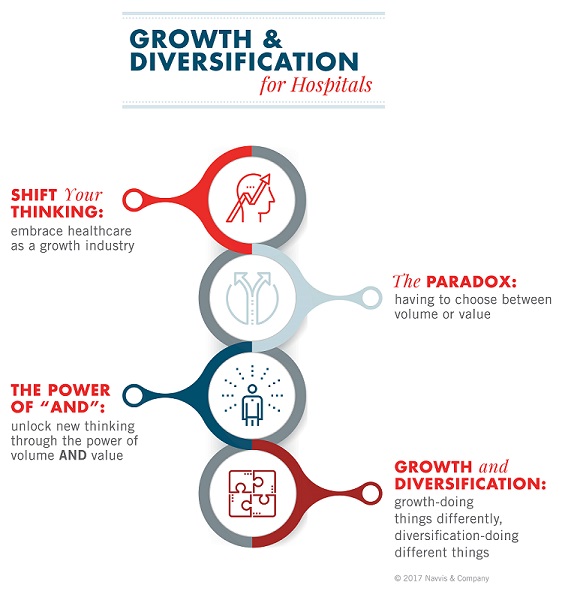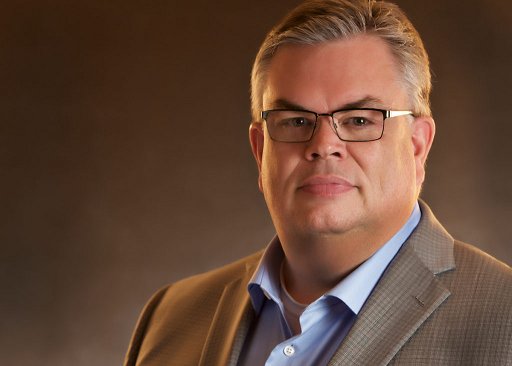We can achieve great healthcare. To get there we must eliminate the paradox confronting CEOs.
Good is the enemy of great.
Say it with me. Good. Is the enemy. Of great.
Those of you who have heard of author and business expert Jim Collins, and have read his book Good to Great, will recognize this idea. But do you act on it?
Look at our schools. Look at our infrastructure. Wherever you look, across crucial sectors of American society, you will see the same problem. We settle for good, when we should be striving for great.
American healthcare is good. But compare statistics on mortality rates, chronic condition prevalence and expenditure with the rest of the world, and it's clear that our healthcare system is far from great.
Our country is $20 trillion in debt and the largest expense in our unsustainable budget is paying for, you guessed it, good healthcare. Let's be clear. Good healthcare is not good enough. Our healthcare must be great.
Can we achieve great healthcare? I say yes.
Fall In Love With the Problem, Not the Solution
What is the problem in healthcare?
Uri Levine, the founder of Waze, and Marc Randolph, the founder of Netflix, have an idea that we have adopted across our organization. To have a truly transformational impact you must fall in love with the problem, not the so-called solutions. In healthcare, we can't even see what the problem is.
Billions of dollars have flowed into our industry to solve problems. Is our problem a need for bigger investments in technology? We've got the best technology money can buy. Is our problem a lack of data or too little analysis? Our predictive models are the best in the world. Maybe if we could just get better physician and patient engagement?
Solutions for all these problems, and a whole host more, are already for sale in the healthcare marketplace. But these solutions are not addressing the real problem, and certainly aren't taking us on a transformational journey to great healthcare.
Growth and Diversification Is the Problem
When did healthcare stop seeing itself as a growth industry? The mindset of so many in the healthcare industry today is dominated by words like reduce, cut, eliminate, and consolidate. Such a negative mindset alone can never achieve great healthcare. The problem in healthcare is growth and diversification.
Leaders in healthcare must fall in love again with the mindset of growth. "How will what I am doing today, be done differently tomorrow?" This is the growth mindset. "What can I do that is different?" This is the question we ask to diversify. Growth. Expansion. Diversification.
Fall in love with growth and diversification as the problems you must solve, and opportunities appear. Familiar sectors like payors, providers, employers, and consumers become abundant with opportunity again, if and when we view them with a growth mindset.
But, as you pursue growth and diversification, be prepared that you are walking straight into a paradox that you are going to have to confront.
Solving The Growth Paradox
You're standing, one foot on the boat, one foot on the dock. The water is churning beneath. If you don't choose, the boat OR the dock, you'll fall in.
This is the growth paradox that all CEOs face. We are asked to grow revenue, while at the same time reduce cost. In healthcare this paradox appears as the notion of volume vs. value. Each new attempt to "fix" healthcare only drives volume and value - the boat and the dock of our industry - ever further apart.
To avoid tumbling into the water, many healthcare CEOs believe they must choose between value OR volume. This is the "tyranny of the or". The pressure to choose has led many providers, payers, and even employers to be enveloped in initiatives that seek to align payment to specific measures. But industry professionals know that volume-based care remains the lifeblood of most healthcare organizations.
Trying to solve the growth paradox, by making a false choice between value OR volume, paralyzes action in too many healthcare organizations, and keeps them from achieving great healthcare.
Escape the Tyranny of the OR, with the Power of AND
You do not have to choose between volume or value.
Look at the experience of Accountable Care Organizations. Data reported by the Centers for Medicare & Medicaid Services in 2016 showed that 70% of ACOs had expenditure above their benchmark. The average loss was $4.2M. The attempt by hospitals to succeed with ACOs required them to reduce costs, and only cannibalized their bottom line.
Now consider a strategy that chooses value AND volume. It starts with creating an ACO to align your existing physicians. Then it moves to implementing the right people, processes, and technology to drive operational excellence. With a high performing ACO in place, you can create additional ACOs outside your market to capture new physicians and referrals. New value is generated from the competitor's bottom line, creating a thriving environment for you and your aligned physicians. You have unlocked volume-based growth, and strengthened your value-based performance.
You can achieve volume-based growth through value-based performance. But remember it is a zero-sum game and there will be winners and losers.
This very idea opens your mind to a way of thinking. Refuse to be restricted by the paradox of volume OR value, and don't fall prey to the heresy that you must choose between the two. Whether you are rethinking how to execute on new payment models, optimize care delivery, or create physician alignment, the power of AND creates new opportunities to allow both volume-based and value-based strategies to fuel each other.
But strategy is just one part of a successful approach.
An Accelerator for Agile Healthcare
Technology startups are the most agile businesses out there. They are constantly "pivoting" new strategy, and new operations, to find new growth. Venture capital creates new start-ups in accelerators. People, resources, and technological innovations are brought together to quickly bring new ideas to market.
Can healthcare create its own accelerator?
The expertise required for operational excellence are very different to the skills required for growth. There are many hospitals executing on payment models, care delivery programs, and physician alignment strategies, but few have unlocked them as a growth strategy. Even fewer have resources aligned to execute and capture on the desired value.
Imagine those strategies, implemented by an energized team, focused on unlocking new sources of value. Imagine an accelerator for healthcare. Our organization does not have to imagine. We are making this real. We like to call it a Growth Services Organization, or GSO.
The GSO is centered on an integrated network of trained people and aligned processes, and is fueled by a portfolio of integrated technology. Its singular focus is on growth, unlocked through the power of volume AND value. A GSO is not just for those with abundant resources, it is accessible and achievable by every hospital and system.

It's Time to Lead. It's Time to Grow
Market leadership and winning is a zero sum game. It's a game that will be won by leaders. Those who lead by defining their own role will gain market share, at the expense of those competitors who fail to maintain relevance.
Too many CEOs I talk to are caught in reactive strategies, stuck in the mindset of cut, eliminate, consolidate. They are trying to "keep up" by choosing between the false paradox of value OR volume. Those CEOs who think differently, who choose a growth mindset, who choose strategies rooted in value AND volume, will lead the healthcare industry. Not only will they win market share and diversify to unlock new sources of value, they will lead us beyond good, to healthcare we can proudly call great.

Mike Farris
Chairman & Chief Executive Officer
With 25 years of healthcare industry experience, Mike has been a driving force in the development and growth of healthcare organizations. A key area of his expertise lies in the creation of strategies that align hospitals and physicians, and redesign the delivery of care. In addition to his extensive experience in the area of organizational development and strategy implementation, Mike is well-versed in the for-profit sector.
His particular experience in managed care, as well as outpatient ambulatory strategies and management gains him the keen insight into the challenges faced by executives with a mandate around enhancing shareholder value. With an in-depth knowledge of regulatory matters, he is conversant on a wide range of matters from physician and hospital business arrangements to the operation of publicly traded organizations. A skilled executive coach, Mike's counsel is sought and valued by clients around the country.
Experience
Prior to forming Navvis, Mike served as President and CEO of Lasersight Incorporated in Orlando. Lasersight developed corneal refractive surgical lasers and other medical devices and was traded on the NASDAQ national market exchange. Mike also acquired MEC Health Care, Inc., a successful managed care company with over a million insured lives in the Mid-Atlantic region of the United States. Before serving as the CEO of MEC Health Care, Inc., Mike was Founder and CEO of the Farris Group, a specialty healthcare consulting practice. The Farris Group focused on mergers and acquisitions and facilitated hospital mergers and acquisitions as well as medical practice acquisitions across the nation.
Over the past two decades Mike has demonstrated a unique ability to move organizations forward in strategy development and design, capital strategies, and sourcing capital. CEO's across the country have repeatedly turned to Mike for his counsel and experience based insight as they face strategy critical decisions for their organizations.
Contact
Email: mike.farris@navvishealthcare.com
The views, opinions and positions expressed within these guest posts are those of the author alone and do not represent those of Becker's Hospital Review/Becker's Healthcare. The accuracy, completeness and validity of any statements made within this article are not guaranteed. We accept no liability for any errors, omissions or representations. The copyright of this content belongs to the author and any liability with regards to infringement of intellectual property rights remains with them.


